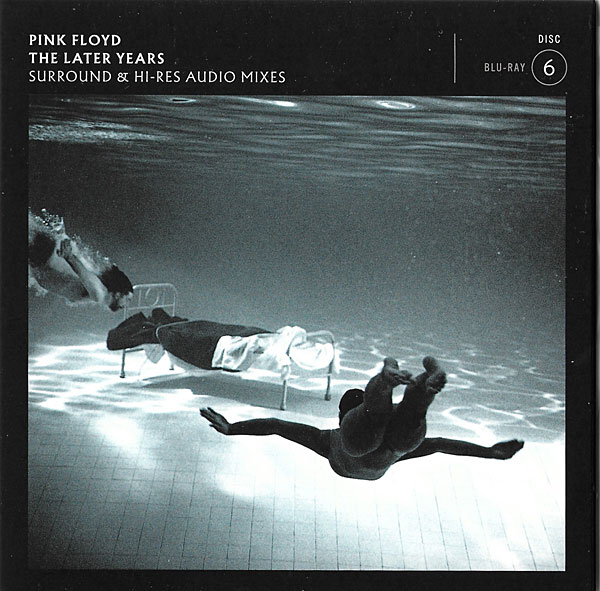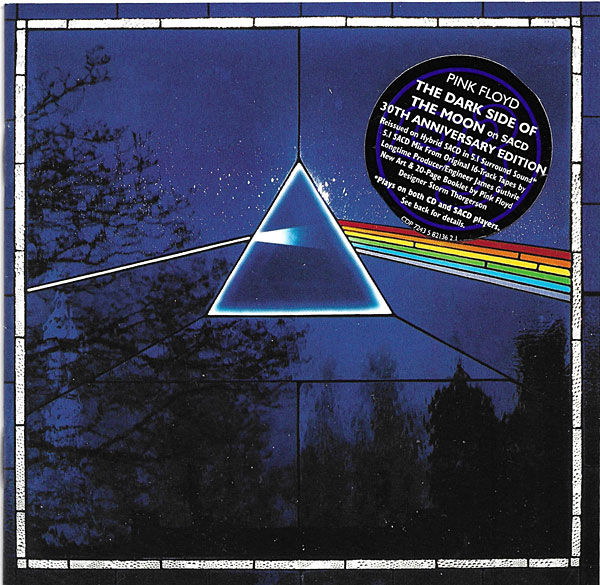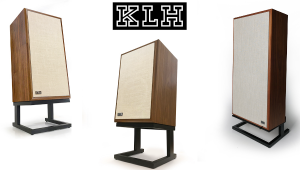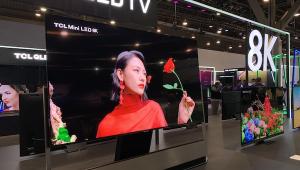My only criticism of this interview is that it is way too short. Besides being a fantastic drummer, Nick Mason is one of friendliest musicians I have ever met. I had short but memorable conversation with him at a book signing event at a B&N in Paramus, NJ where he autographed my copy of Inside Out (a must-have for any PF fan). I saw Pink Floyd for the first time in May 1972 at Carnegie Hall which Nick vaguely remembered. They previewed a couple songs from Dark Side but most of the concert was classic Floyd with the three urns on the back of the stage which burst into flames during Careful With Axe, Eugene. I bought the Roundhouse album as a 96/24 download from hdtracks.com before I found out about the BD (which arrives tomorrow!). This is a great collection of songs, some of which I've never heard live like The Nile Song and Bike. I, too, would love to see a surround version of Animals. Personally, I was so pissed at Waters for throwing Rick Wright out of the band that I refused to buy The Final Cut and still don't consider it a Pink Floyd album. What I would really enjoy seeing is surround mixes of the first four Pink Floyd albums (especially Ummagumma) + Meddle (we only got Echoes) similar in quality to what they achieved with A Momentary Lapse Of Reason. Getting back to Nick Mason's new album, the hi-res version sounds awesome and I can't wait to hear the surround mix on the bluray. Thanks Mike for another great interview and thanks Nick for reviving the Golden Years of Pink Floyd!
Nick Mason Spills a Saucerful of Secrets Page 2
Mason: Oh yes. Sound and technology have gotten to the point where, particularly if you're filming and recording, the opportunity to get good recorded sound now is so much better than it would have been even 20 years ago. Just the availability of the more modern microphone technology and so on tends to be much easier.
Mettler: And you had Nick Davis do the surround mix.
Mason: Yes, and Nick did a terrific job. He's not someone I'd ever worked with before, but Nick is someone who came out of being friends with [guitarist/bassist] Mike Rutherford of Genesis.
Mettler: Right, because you guys share Tony Smith as a manager.
Mason: That's right. So Nick came very highly recommended by them, and I have to say, I think he did a fantastic job with it.
Mettler: All the Genesis stuff Nick [Davis] did in surround, both live and studio, is a benchmark for us surround geeks. Did you and he have any discussions beforehand as to what you wanted the sound palette to come across as? What was your goal with him?
Mason: We probably discussed the tech side of it. But, in fact, in the way that you're putting down the live sound—what you want to do is just get it recorded properly. You don't go for what it really sounds like until you get the tapes back in Abbey Road [Studios], and put it up on the board.
It's much like when you're getting a photograph. When you know you've got it raw, you can then do anything you like with it. The main thing is—and this is what Nick is really good at—making sure everything that was recorded was recorded at the best possible standard.

Mettler: We've talked about surround sound before, of course, and you once said to me you thought surround was the best format for live music because you could get all the subtleties and nuances of the performance in there, in that format. Do you still agree with that?
Mason: Yes, I do! It's all too easy to do a live recording and, more or less, it'll sound exactly like the record. Which, in a way, is a shame, because the object of a live performance is a bit more than that. And I do think if you've got that sort of ambience, and the audience actually supplying some of that sensation for the recording, it's a good thing.
Mettler: Even though you have the pumped-in, pre-recorded soccer audience sounds for "Fearless" [originally from November 1971's Meddle], we also get the sense of what the actual audience in front of you is responding to, in that moment.
Mason: Yeah, yeah, you're right; that's true. When I went to Abbey Road to listen to the [Dolby] Atmos playback of The Beatles album, [September 1969's] Abbey Road—I found it was reallyinteresting, and really good. I mean, you do need a really advanced home system to make it work, but that's the only drawback with Atmos. You need a dedicated room, don't you?
Mettler: Yeah, you do. I've spoken to a number of British artists who say that, in a lot of rooms in England and other parts of the U.K., since couches are up against the back wall, a lot of people can't place the speakers around them so they can set up that room properly for surround experiences, and they also can't fit them into walls and ceilings too easily. Whereas over here, it's much easier for some of us to set up any kind of surround configuration we want. Well, maybe we can get some of the core Pink Floyd catalog into the Atmos universe at some point, moving forward.
Mason: That would be a great thing to do! And I have to say, I'd love to do Dark Side in Atmos.

Mettler: That's the one I'd want! And I can say I've spoken to [surround sound guru] Steven Wilson firsthand about that album. He'd like to expand upon Dark Side, even beyond what James [Guthrie, producer/surround mixer] and Joel [Plante, assistant engineer] did for the 5.1 SACD version [which was initially released in 2003, and later included in the September 2011 The Dark Side of the Moon Immersion series box set in 24-bit/96kHz 5.1 on both DVD-A/V and Blu-ray].
Mason: What would be interesting—the guy to let loose on it—would be Chris [Thomas], who did the original mix. [Thomas' work on the album is listed in the original Dark Side credits as, "Mixing supervised by Chris Thomas."]
Mettler: That's not a bad idea. You could have both Chris and Steven do new surround mixes for that album, actually. Well, you have a 50th anniversary for Dark Side coming up a couple of years from now in 2023, so there's plenty of time for them to jump in and do it.
Mason: Yeah, well, it would take about 50 years to persuade the rest of the band to approve another mix, so. . .
Mettler: (laughs) You all still have to figure out what's going on with [January 1977's] Animals, which I guess is still in limbo.
Mason: (laughs) That's certainly taken 10 years, yes.
Mettler: If you don't mind me asking, Animals has already been done in surround, and some kind of release idea was drawn up with bonus materials, right?
Mason: Yes—well, I don't know where we've really gotten to with that one. There's been a disagreement between Roger [Waters, original Pink Floyd bassist/vocalist] and David [Gilmour, Pink Floyd guitarist/vocalist] on some aspect of it, yeah. And, to be honest, I'm just waiting to see when the dust settles.

Mettler: Right, right. But you, obviously, would like to see Animals come out in surround, because that was the first album Pink Floyd recorded in your own Britannia Road Studios [in London, from April-December 1976], and it's an album that had a bit of the punk influence on it as well.
Mason: Yeah. It was fun and interesting to record in our own studios, but we didn't quite have the tech-level of an Abbey Road. The equipment was ok—we had an MCI machine [recording console], and we had a good engineer, Brian Humphries, working with us. But it just probably lacked the sort of polish that perhaps Abbey Road would have brought to it.
Mettler: Well, hopefully, a 5.1 mix of Animals will be able to get through the pipeline, so we can truly get the full "Pigs on the Wing" experience in surround.
Mason: Yes, I'd like that. It could be something.
Mettler: I agree. And interesting that Abbey Road fits into being where the current live recording was mainly mixed, because that's also where the live quad idea came to pass back in early 1967. That's something you and the guys in Pink Floyd figured out literally while you were recording in that space originally for the Piper album.
Mason: Yes, and it was Bernard Speight, one of the engineers at Abbey Road, who brought us the original quadrophonic pan pot.
Mettler: Yeah—the Azimuth Coordinator was the official name for that quite interesting device, I believe.
Mason: (chuckles) Yes!
Mettler: Literally, Pink Floyd were the first ones to do live quad in a live space, for that Games for May performance [held on May 12, 1967, at the Queen Elizabeth Hall in London].
Mason: Yes, that's where we originally did it. And it worked. It was very interesting. And back then, it was a bit like Atmos—everyone thought quadrophonic was the coming thing. It was just too complicated to mix. I remember, further down the line, you'd end up with this mixing desk with a quad pot on every single channel—and it was more problem than it was worth, I suspect.
We really always knew what sort of sound effects we wanted, and had specific reasons for them. We weren't just looking for random sounds, whether it was relative to a song—or something like Dark Side, where it was quite often vocal lines, or something rather different.
Mettler: For the Saucerful band's live performances, did you have full access to the Pink Floyd library of sound effects, such as certain animals or nature noises?
Mason: Obviously, we have access to any of the sound effects we used on the original songs, whether it be wind, or [October 1970's] Atom Heart Mother, which is actually full of sound effects that could be lifted and played appropriately.
As for the intro tapes, we didn't used anything from the Pink Floyd catalog. For example, "Domine" just sort of started from scratch with just some strange noises.
Mettler: In the performance of "Domine" that's on the Blu-ray, you look pretty intense. You seem to be gritting your teeth whenever the camera turns to you. You're in full attack mode.
Mason: How I actually appear onscreen is not how I feel! (chuckles) It's a really strange thing. I think I'm smiling and obviously chipper, and then I see this rather grumpy old man looking back at me.
- Log in or register to post comments


Just finished watching the BD in 5.1. The audio quality is excellent but I would have liked more definition of instruments in the surround channels. I was surprised they chose to use uncompressed PCM, albeit in 24/48. This method uses up a lot of bit rate compared to dts-HD or Dolby TrueHD. The other plus with these lossless codecs is they allow you to take advantage of a 7.1 or 7.1.4 system which I often prefer for live concerts. This isn't meant to be a criticism, but it's been some time since I bought a BD mastered in 5.1 uncompressed PCM, and possibly the first in 24-bit.






























































